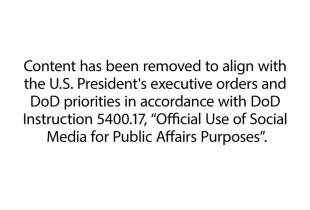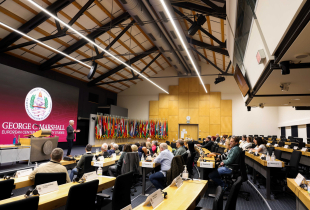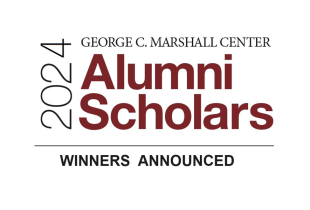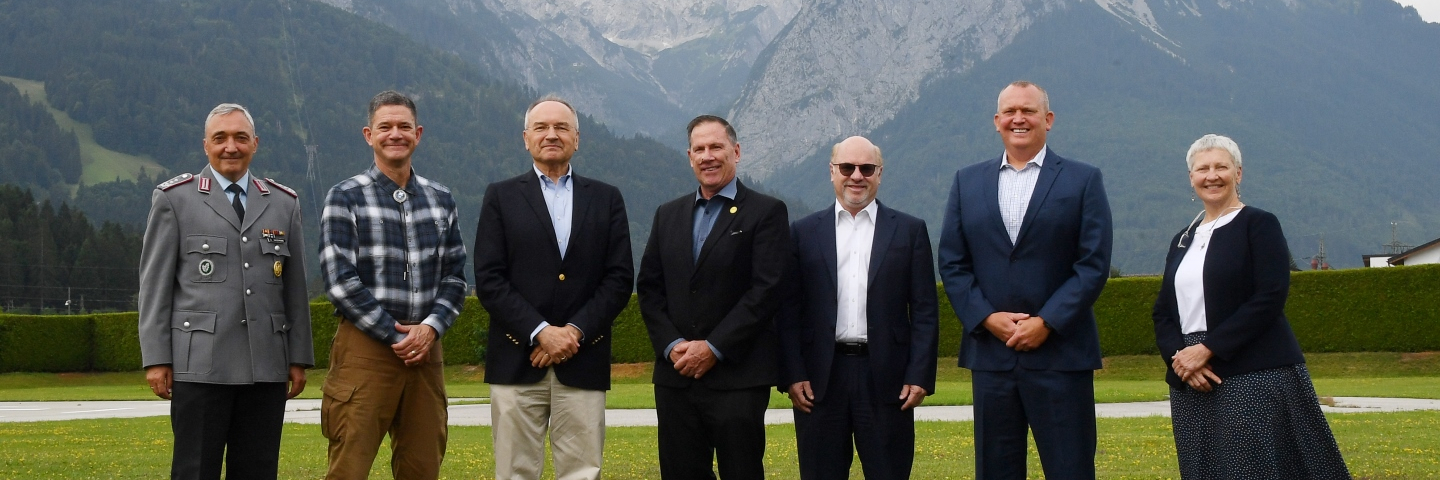
Regional Center Deans hold annual meeting in Garmisch-Partenkirchen
Four deans from the Department of Defense Regional Centers came together for their annual meeting hosted for the first time by the George C. Marshall European Center for Security Studies in Garmisch-Partenkirchen, July 24-28. Retired Rear Adm. Matt Bell from the Ted Stevens Center for Arctic Security Studies in Alaska, Dr. Scott Tollefson from the William J. Perry Center for Hemispheric Defense Studies in Washington, D.C., and retired Capt. Carleton Cramer from the Asia Pacific Center for Security Studies in Hawaii, met with Dr. Andrew Michta, Dean of the Marshall Center’s College of International Security Studies to share best practices and to find synergies for potential future collaborations.
"We are one global neighborhood," said Michta. "This is not just a meeting, but a hands-on experience of how we operate here at our Center in Garmisch."
The goal of the Regional Centers is to build global partnerships and networks that contribute to the larger security cooperation efforts. Since 2018, the deans from the different Centers have met annually in Washington, D.C., the middle ground between Germany and Hawaii, the locations of the two farthest eastward and westward centers.
Between briefings and closed-door meetings, the deans were able to go over challenges as a team, from faculty hires and professional development to alumni program management and course curricula.
“We’re all working toward the same end goals,” said Bell. “We each have a different relationship with the Secretary of Defense, we all work with a different director. But collectively, we’re better working as a team rather than in individual silos.”
“It’s always a question of where and how we should be collaborating,” explained Tollefson. “What topics, what issues, where we are going as Centers geographically. Just as importantly, how we can be doing it better.”
The deans meet virtually once a month, something that enhances their connection. But for Cramer, this annual meeting was all about the human connection.
“We sat down and talked about human resources, about vetting the Fellows, about budget and about program design. However, what I’m going to remember more, quite frankly, is the people I met,” said Cramer.
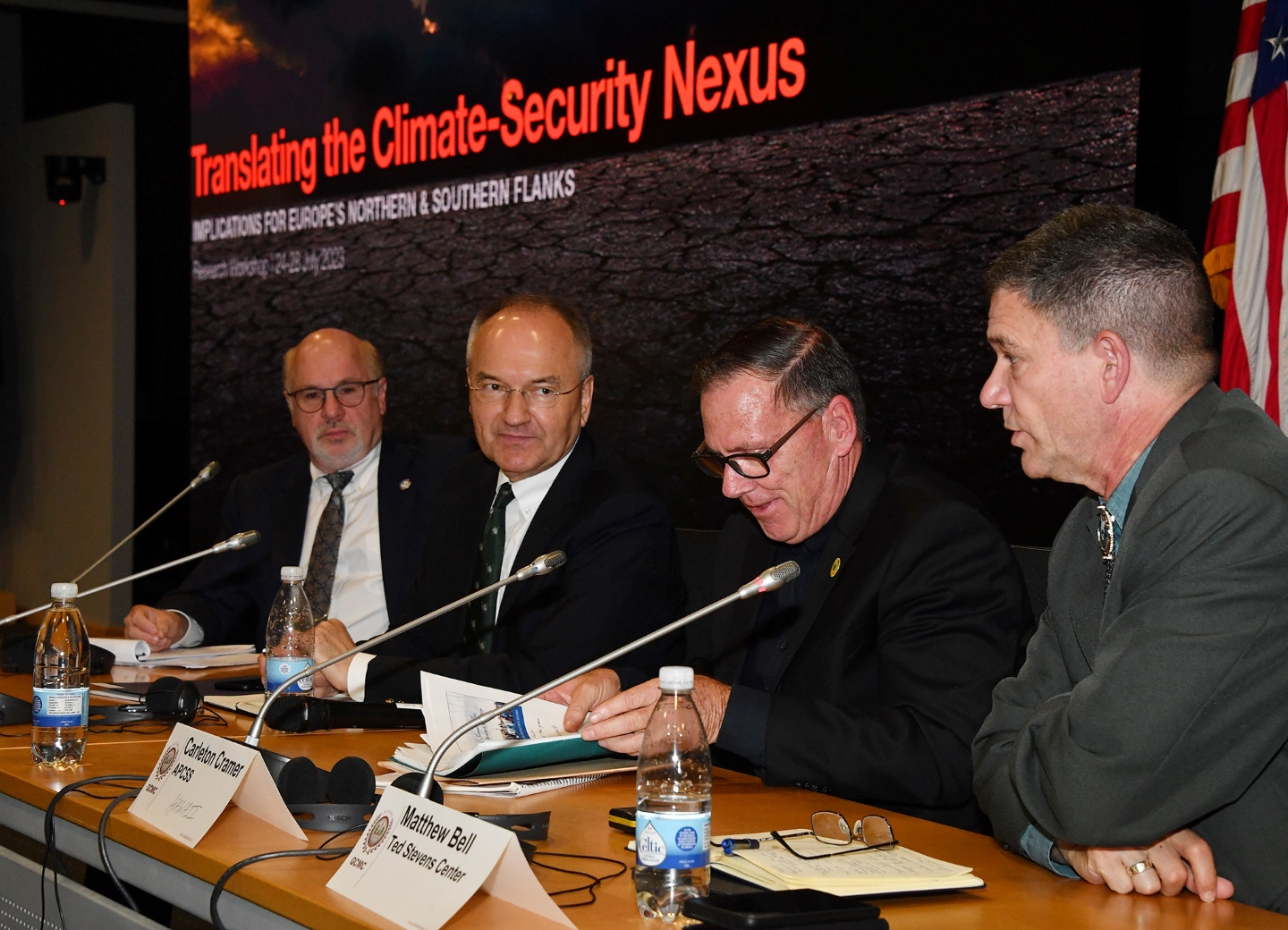
Later in the week, the deans participated in the Marshall Center’s week-long Climate Change-Security Nexus workshop, an event that was enriched by the inclusion of all the regional perspectives. In a panel discussion, the deans highlighted the different observations of each region on the security risks of climate change. “It was important for each dean to bring their perspective,” said Michta. “Climate change is a huge issue.”
“That we’re all meeting here is testament to the fact that climate change is of great interest to our Centers,” reiterated Tollefson during the panel discussion.
The George C. Marshall Center for Security Studies, founded on June 5, 1993, is a renowned international security and defense studies institute. A bilateral partnership between the U.S. and Germany, it is a lasting cooperation that promotes dialogue and understanding among the nations of North America, Europe and Eurasia. In 2023, the Marshall Center marks its 30th anniversary, re-emphasizing its commitment to carrying Marshall’s vision, an enduring legacy that continues through the security education initiatives of the Center.
